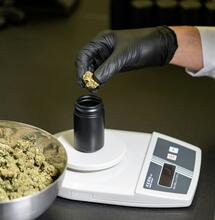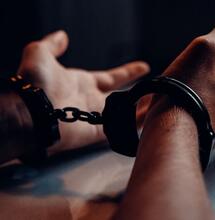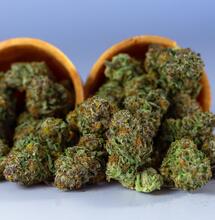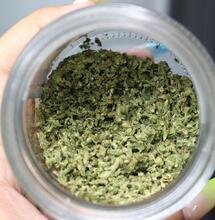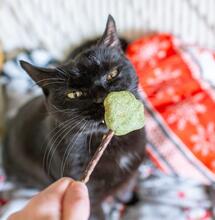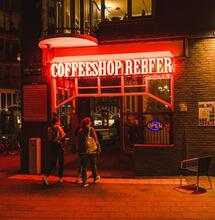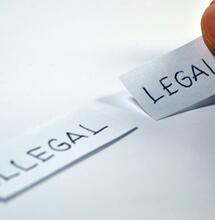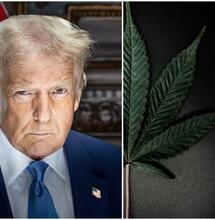Italian Law Suggests Growing Weed Is Not A Crime?
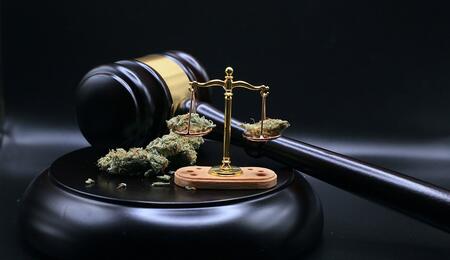
A case of a teacher found with three plants and 750 grams of Cannabis in Italy marks a turning point as it aims to set the standard for the country's legal system. Our reporter from Italy, Marco Ribechi, caught up with defense attorney Marco Baroncini, who explains: "For the first time in the country, cultivation for personal use has been recognized. It is useless to talk about liberalization, the law already allows it. The only crime is the transfer to third parties, which remains an administrative offense."
Possessing and cultivating Cannabis does not constitute any kind of crime as long as the person does not give the substance to third parties. This outcome has been outlined in a ruling by the Milan Court of Appeals against a woman caught in possession of 750 grams of Cannabis and three sizeable plants in the flowering stage. The ruling will definitely ignite a huge debate across Italy, and it is likely to create a precedent in the country's jurisprudence.
For the first time, a trial in Italy recognized cultivation for personal use, but there is more: although the woman also had a prescription for Cannabis, therapeutic use was not necessary to win the case. In fact, the defense attorney emphasized that there was no evidence to support that the woman gave Cannabis to third parties. Without this evidence, the crime does not exist and every Italian citizen is potentially free to cultivate and possess Cannabis as long as the principle of non-transfer to third parties is respected. Transferring to third parties does not only mean selling but also simply sharing in a friendly and free way with other people.
"Every citizen is free to grow their own cannabis," explains defense attorney Marco Baroncini, professor of Criminal Procedure at the Institute of Criminology in Vibo Valentia. He says: "Beyond therapeutic or medical use, growing for personal use is always allowed. What is prohibited is the transfer to third parties, however, without clear evidence of guilt (such as precision balances, pre-packaged doses, large sums of cash, etc.) the crime does not exist. This is what the law literally says and, in my defendant's case, for the first time it emerged within a courtroom for the conduct of cultivation, I do not recall any other similar ruling. So any debate about liberalization is totally useless because in Italy it is already provided for, if at all, we will have to talk about commercialization, which is currently not allowed at all."
Until now, personal use has been a discriminator for Cannabis possession but never had the rule been applied for cultivation, moreover supported by the discovery of a large amount of Cannabis, as much as 750 grams. "During the first hearing, the judge had recognized the purpose of personal use for my client," Professor Baroncini continued, "but he had nevertheless pronounced a sentence of 16 months and 800 euros fine for cultivation, believing that it should always be punished. About ten days after the initial sentence, however, came the intervention of the United Sections of the Supreme Court of Cassation, which pointed out that cultivation for exclusively personal use is not a crime. This made it possible to overturn the ruling in the second hearing to a full acquittal because there's no factual evidence."

From a legal point of view, therefore, the sentence is an example of the application of the law, the evidence that simple conduct cannot be a crime without the prosecution providing evidence of guilt. In this respect, it does not matter the amount of substance, cultivation, or possession. The only thing that needs to be proven to support an accusation is that there is a transfer to another subject. "I can say with satisfaction that justice in this case worked until the end in a perfect manner," the defense attorney continued, "the principle of presumption of not guilty prevailed, and beyond that, the absolute anonymity of my client was maintained, with no social or labor repercussions whatsoever. Acknowledgment for all those who followed the whole procedure and respected the principle of just process and also for the speedy timeline with which the case was dealt with."
The trial in a way is a triumph of liberal justice. "Morally, I am absolutely against the use of any substance, even Cannabis. But that is an ethical and personal judgment," continues Professor Baroncini. "As a man of law, I am faithful to what the great philosopher John Stuart Mill said in his famous Essay on Liberty, that is, maximum freedom and minimum state intervention in prohibitions. Unfortunately, we forget this too often. Our jurisprudence and legal system are the offspring of Cesare Beccaria, arguably the greatest exponent of the Italian Enlightenment and author of Dei delitti e delle pene [On Crime and Punishments], the most influential text in the history of criminal law. Beccaria said, 'Let us not leave interpretations to the judges, the law must be of the people.' Here I fully see myself in this founding principle and add, it is not the citizen who must prove his innocence but it is the prosecution that must provide evidence of guilt."
The ruling by the Milan Court of Appeals thus puts it black and white that cultivation for personal use without transfer to a third person does not constitute a crime and is therefore allowed to all Italian citizens. The scope of this ruling could be historic and challenged first and foremost by the many sufferers who use cannabis for therapeutic purposes. From today they will no longer have to prove that they 'are sick' and therefore have special rights. It will be enough to have the foresight to avoid any kind of transfer and sharing, including free of charge, that will allow them to bypass the prohibitions and obstacles and to achieve full autonomy in the medicine necessary for their dignified life. Moreover, the same can also apply to recreational growers who will no longer have to prove their innocence if caught in possession of plants or substances.
"As I always tell my students," Professor Baroncini concludes, "in the Code of Criminal Procedure there is no such thing as innocence, either you are guilty or you are not guilty, and the evidence of guilt has to be provided by the prosecution, it is not the citizen who has to prove his innocence. Without this evidence, and always remembering the highest examples of the great thinkers of the past, men and citizens are free to act independently in compliance with existing laws and fully exercise their inalienable rights."
